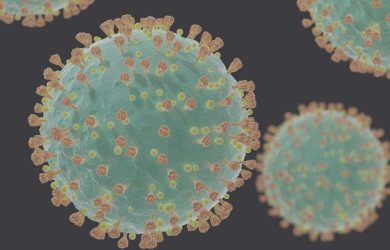Clara Devlieger’s life has come full circle. Born in Congo to Belgian parents, she is hoping to complete a PhD in Social Anthropology on disabled traders in the Kinshasa-Brazzaville area, the border area between the Democratic Republic of Congo and the Republic of Congo.
Clara [2011] was born in Congo as her parents were working in a religious development organisation. Her mother is a physiotherapist and was working in a hospital. Her father is an anthropologist, but was teaching at the time and began his own research on disability while in the country. Her parents had graduated from university and headed out to Congo immediately afterwards. They lived there for two years and then moved to Kenya and Zimbabwe, where she attended a Dutch international school.
The family then went to the US where Clara’s father started a PhD at the University of Illinois. Within a few years when Clara was at junior high school they were on the move again, this time to a town outside Chicago. When she was 14 they went back to Belgium.
Clara, who has two younger brothers, says she didn’t find moving around that difficult. “I was used to it,” she says. “I got used to feeling that we would be moving every few years. It makes you depend more on your close family.”
The move back to Belgium was the most difficult as she was a teenager. “I felt like an American then,” she says, “but at the same time I felt as if I was coming home as all my family was in Belgium. It was a time of mixed emotions.”
At university, she did a degree in English and Dutch at the Catholic University of Leuven and then decided to do her master’s in Social Anthropology at the nearby Louvain-la-Neuve University where she could also hone her French. She said she felt it would be difficult to find jobs in anthropology after graduation so she wanted to develop her languages. “I had a strong interest in culture and languages are clearly integral to culture,” she says.
Clara, who is also involved in the youth movement Chiro and is a keen orienteer, had been planning to do her master’s dissertation on the subject of boundaries. Her choice became a study in Kinshasa (Congo) where a political religious movement had a specific philosophy about boundaries. While in Kinshasa, she visited the border between Kinshasa and Brazzaville, the capital cities of the Democratic Republic of Congo and the Republic of Congo respectively. “There were disabled people everywhere there,” she says. “They were trading and carrying goods around getting them ready to be transported to the other side of the Congo River. It was fascinating.”
Most of the disability was caused by polio. “Disabled people are normally social outcasts in Congo. They are at the bottom of the social ladder, but if you go to the border they have turned things around,” she says. “Disabled people are controlling things and are organised in unions. It is fascinating how they have managed this. I want to discover whether there are general lessons to be learnt about improving the situation for disabled people or socially weak individuals in general.”
She has got Gates funding for an MRes in Social Anthropology which covers the first year of her PhD in 2011/12 and hopes to secure further funding for the following two years. She has also secured funding from Trinity College for pre-research linguistic training. She is keen to learn Lingala, the most widely spoken local language.
“I want to explore what is really going on,” she says. “Some journalists have written about disabled traders in Congo, but nothing has been written in any depth.”












